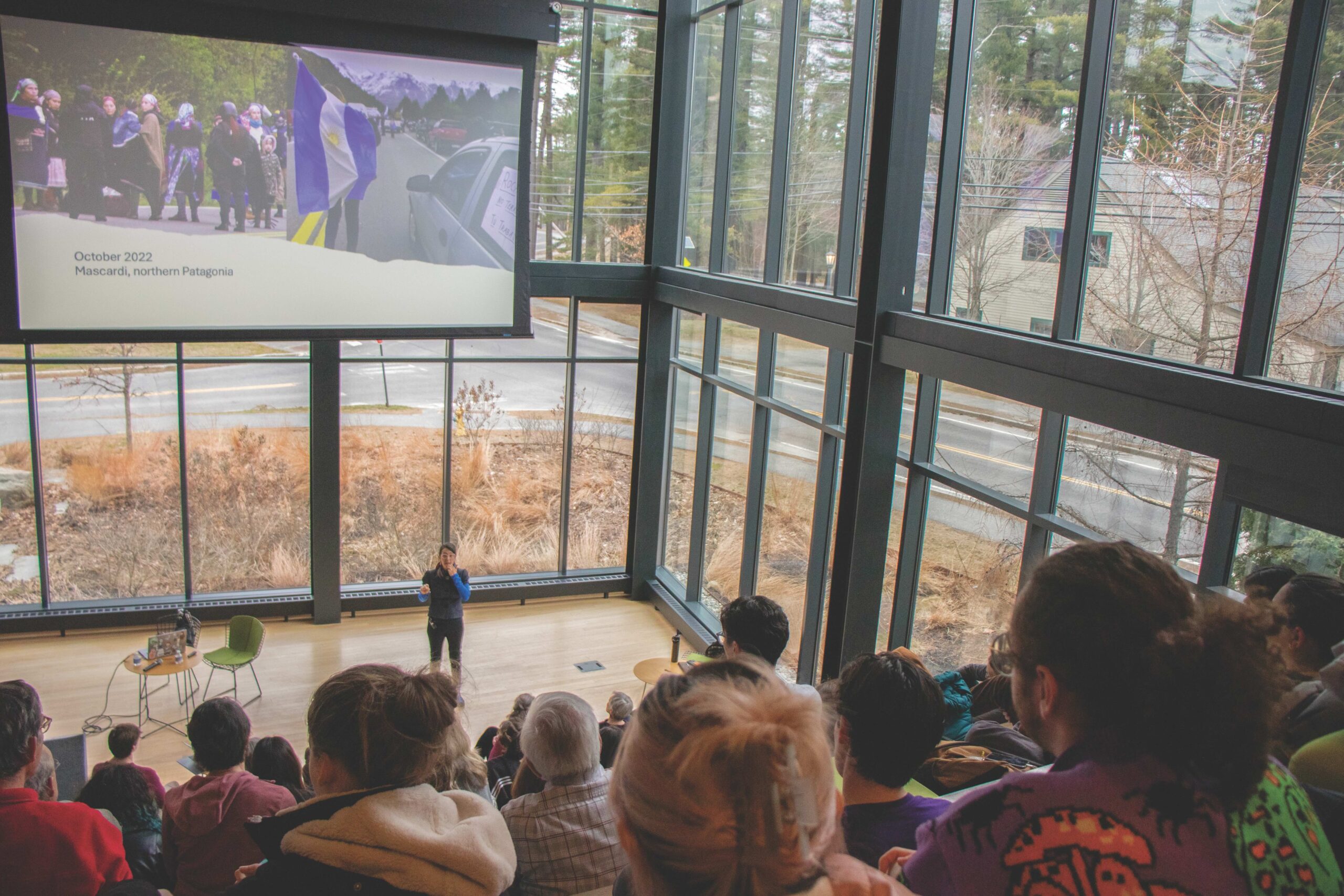Pérez reanalyzes the narrative on the military’s campaign in Patagonia: the Conquest of the Desert
April 12, 2024
 Isa Cruz
Isa CruzLast Wednesday in the Roux Lantern, Pilar Pérez, a professor of history at the National University of Río Negro in Argentina, spoke on the recent reexamination of the 19th-century Argentine genocide of the Indigenous Mapuche people.
Pérez’s research explores the erasure of Indigenous memory following the colonial Argentine military’s Conquest of the Desert in 1879.
The Conquest of the Desert was the military’s campaign to annex, “civilize” and occupy Patagonia in Southern Argentina. The military executed or relocated the Indigenous Mapuche people to concentration camps, cities or settlements where they were baptized, renamed and educated to assimilate into colonial Argentinian society.
“After the military campaign, what was mediatized was the idea that the land was incorporated into the national territory, an economic increase for the country and also that the ‘Indigenous problem’ was ended,” Pérez said. “No Indigenous people were supposed to survive.”
Pérez posits that the legacy of the Conquest of the Desert is that modern Argentina is perceived as a “white nation.” The Mapuche people who had originally populated Patagonia are seen by a majority of present-day Argentinians as foreigners.
“The myth of the creation of Argentina is that we are descended from boats—the [European] boats brought to Argentina by the late 19th century,” Pérez said.
Pérez argues that this myth perpetuates the alienation of Indigenous communities in Argentina today. She outlined the defensive attitude of some white Argentinians in renegotiating this native-settler tension with Mapuche people.
“If [Argentinians] descend from boats, what are these Indigenous people doing here? Why are they demanding rights? Who are they? Are they Argentinians?” Pérez said.
According to Pérez, researchers have recently begun to reassess this chapter in Argentine history, exploring Argentinas’s historical archives and uncovering evidence that supports calling the Conquest of the Desert a genocide. Though Pérez believes the use of the term genocide for this situation is accurate, calling it genocide is controversial in Argentina.
“[Colonial Argentine society was] built on genocide. That’s uncomfortable, right? It’s not like there was a war, and they got displaced,” Assistant Professor of History Javier Cikota said. “Genocide has such weight. And in her written work, [Pérez] does such a good job of building up that case so that it doesn’t sound outlandish.”
Despite recent riots and vandalization protesting the colonial tirade and its leaders, authorities have passed few impactful policies for reparations.
“In 1994, there was a constitutional reform, and the Indigenous people in Argentina were recognized as pre-existent to the State,” Pérez said. “That resistance brings a lot of rights which are not being put into practice.”
Pérez is not optimistic about reparations progressing past Indigenous acknowledgment in the near future given Argentina’s current tumultuous political climate.
“The president we have now is a devotee of General Roca [the leader of the Conquest of the Desert],” Pérez said. “He’s doing this because he’s dependent on the idea of a white, masculine, Christian nation.”
Cikota outlined the importance of uncovering hidden historical truths to better understand the events of today. He believes that understanding the history of Argentina could unveil similar patterns of violence against Indigenous peoples all around the world, even in the state of Maine.
“You can’t really change the past. You can move forward and you can try to make a different world, or give a new meaning to the world,” Cikota said.

Comments
Before submitting a comment, please review our comment policy. Some key points from the policy: